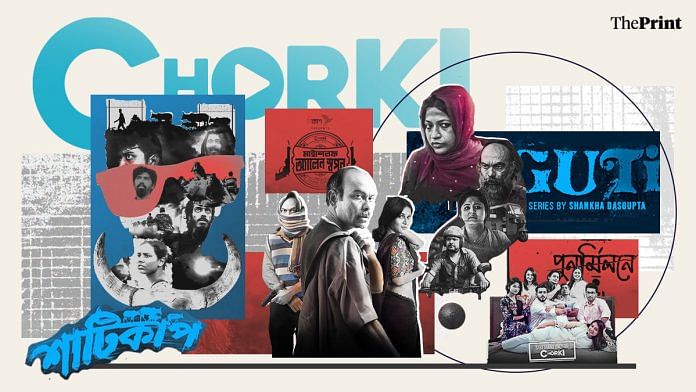Dhaka: Bangladeshi OTT platform Chorki has been boldly going where few dare to tread. From a wife unapologetically prioritising her sexual desires, to a mother smuggling drugs inside her body, to a man helplessly in love with his cousin’s wife, the platform has pushed boundaries with its morally complex characters and raw stories told with finesse. Now, Chorki is poised to cross a new frontier, bringing its envelope-pushing content to India, starting with West Bengal.
Since its launch in Bangladesh in 2021, Chorki’s series and films have defied conventions, ignited controversy, and set new standards for hyper-local content with cross-over international appeal. Its action-packed series Shaaticup (2022) has been called the “Bangladeshi Narcos” and for the gritty thriller Guti (2023), it released a promo cleverly referencing elements from Breaking Bad.
So, when the platform announced last October that it would be producing original content specifically for India, there was much cheer from audiences and filmmakers in West Bengal. While Bangla language content remains its core, Chorki also has its sights set on other languages and markets, promising stories that are both original and daring.
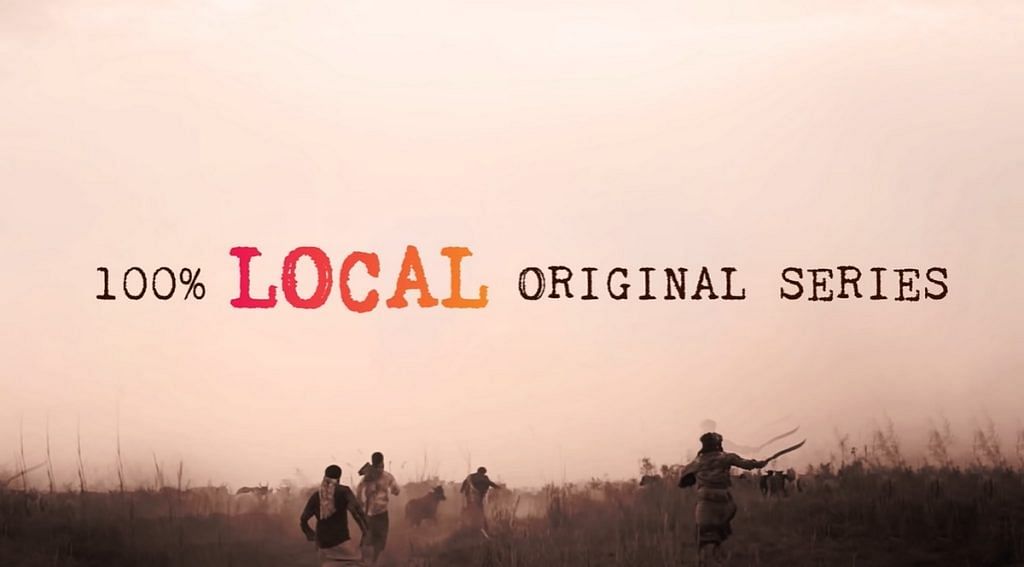
Speaking to ThePrint from Dhaka, filmmaker and Chorki CEO Redoan Rony said plans are in motion to bring together talent from the “two Banglas”—West Bengal and Bangladesh. Chorki, along with Dhaka-based Alpha-I Studios and West Bengal’s film production and distribution company SVF, are collaborating on two major films, the big-budget thriller Toofan and the Domm, which Rony is directing.
“But we will not stop at that,” said Rony, 40. “We will make originals and OTT series that will make the global market sit up and take notice. And soon enough, we will venture into other languages and markets both in India and outside.”
Chorki’s stories mirror the realities of life in Bangladesh without sacrificing plot, pacing, or production value.
Also Read: Dear India, Bangladesh’s SRK is coming to you. With movies and skincare
It’s all about the story
Hoichoi may hold the crown for Bengali-language streaming in India, but Chorki has been making serious cross-border inroads since its launch in Bangladesh just over two years ago. Its secret weapon— shows that shatter stereotypes of what Bangla content can be. Its stories mirror the realities of life in Bangladesh without sacrificing plot, pacing, or production value.
The courage to tell such stories came from the conviction that Bangladeshi stories should be told by Bangladeshi platforms and not by Netflix and Amazon, Rony said.
“Foreign OTT platforms sell us quality content. But they cannot smell the earth, breathe the air, and enter the heads and hearts of Bangladeshis like we can do,” he added.
A filmmaker himself, Rony has directed numerous successful shows and movies in Bangladesh, including the National Award-winning Chorabali (2016), even launching his own short-lived OTT platform, Popcorn Live before helming Chorki. Over the years, he has seen Bangladeshi audiences change.
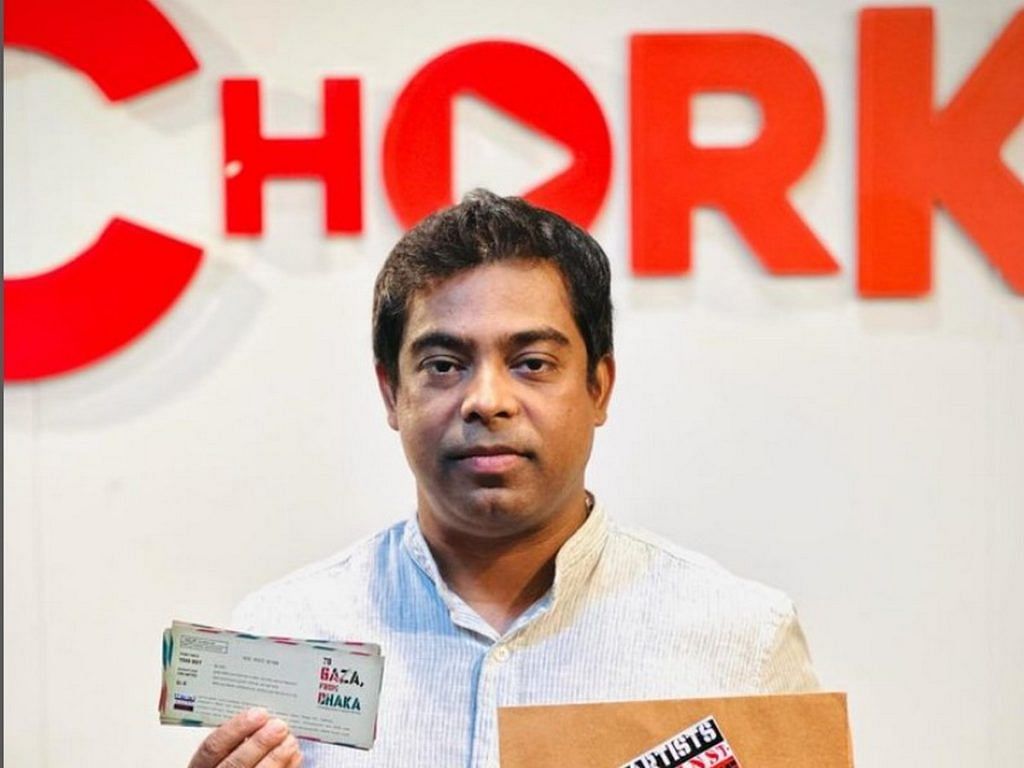
“Chorki was started with the belief that the urban audience in Bangladesh has become mature enough to see the kind of content that we produce,” he said. “We were happily amazed to see that not just the urban but the suburban audience took to our shows even before Chorki completed a year.”
Chorki doesn’t shy away from controversial themes, uncomfortable visuals, or subtle political commentary. And its shows, spanning genres from horror to thrillers and family dramas, have become talking points both in Bangladesh and West Bengal.
Chorki has maintained a consistency in quality content that should be a yardstick for everyone working in this space
Prasun Chatterjee, filmmaker
For instance, the 2023 Eid release Myself Allen Swapan sent shockwaves across Bangladesh and became the platform’s most-streamed content yet. The series features a middle-class homemaker called Shayla (played by Rafiath Rashid Mithila) who ends up placing her sexual and financial needs above conventional morality. Caught in the middle of a game of cat and mouse between drug lords and government agents, Shayla discovers that an imposter has been sharing her home and bed—her husband’s twin, a wanted criminal. But rather than recoiling in horror, Shayla accepts him for the passion and financial stability that was missing in her marriage.
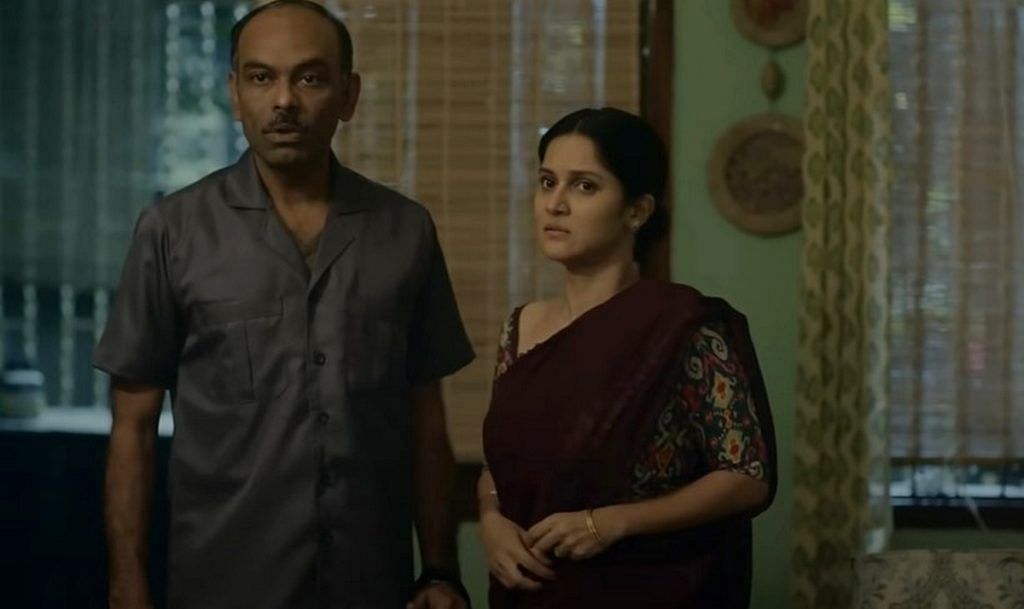
Shayla was written like no other female character in Bangladeshi cinema or OTT so far. Actor Mithila told ThePrint this was a challenging role to play, but one she thoroughly enjoyed.
“Chorki is changing the narrative within Bangladesh and outside. The brand has come to be known for telling stories others won’t dare to attempt. Playing Shayla brought me some hate on social media. But a significant section of the audience and critics loved Shayla and Myself Allen Swapan,” she said.
Rony said women characters have been shown a certain way in Bangladeshi cinema and OTT. “They have mostly conformed to a set stereotype. With Myself Allen Swapan, we wanted to alter the gaze, write a woman character who thinks for herself and her emotional, sexual, and financial needs,” he said. When it became the highest streamed content from Chorki, Rony said the criticisms and the social outrage didn’t hurt anymore.
Bouquets and brickbats
It’s not just Myself Allen Swapan. Criticism and critical acclaim have both been constant companions throughout Chorki’s storytelling journey.
In 2022, for example, the thriller-drama Nikhoj stirred controversy. It follows a woman searching for her father, who vanishes after being taken away by men claiming to be the police. But the family of photojournalist Shafiqul Islam Kajol, a victim of enforced disappearance, claimed that Nikhoj’s portrayal was insensitive. In an open letter, Kajol’s son Monorom Polok said that the series seemed like “paid content from those in power” and had “utterly disgusted” his father. At the time, Rony defended the show, maintaining Nikhoj was fictional and any resemblance to Kajol’s case was coincidental.
We are simply trying to tell stories honestly about people and situations that we see in society but do not often talk about in public
-Redoan Rony, Chorki CEO
Then, the 2023 release Guti ignited much social media debate for its complex portrayal of a woman called Sultana (played by Azmeri Haque Badhan, known in India for her role as Tabu’s lover in Vishal Bhardwaj’s Khufiya).
An affectionate mother who moonlights as a drug smuggler, Sultana is depicted inserting condoms filled with drugs into her body. Despite criticism for this aspect, Guti got a subtle endorsement from filmmaker Anurag Kashyap, who shared the teaser as a story on his Instagram handle, complete with fire emojis. Another big talking point was Chorki’s innovative promotion featuring photos of the lead actors in yellow lab coats, reminiscent of the iconic characters Walter White and Jesse Pinkman from Breaking Bad.
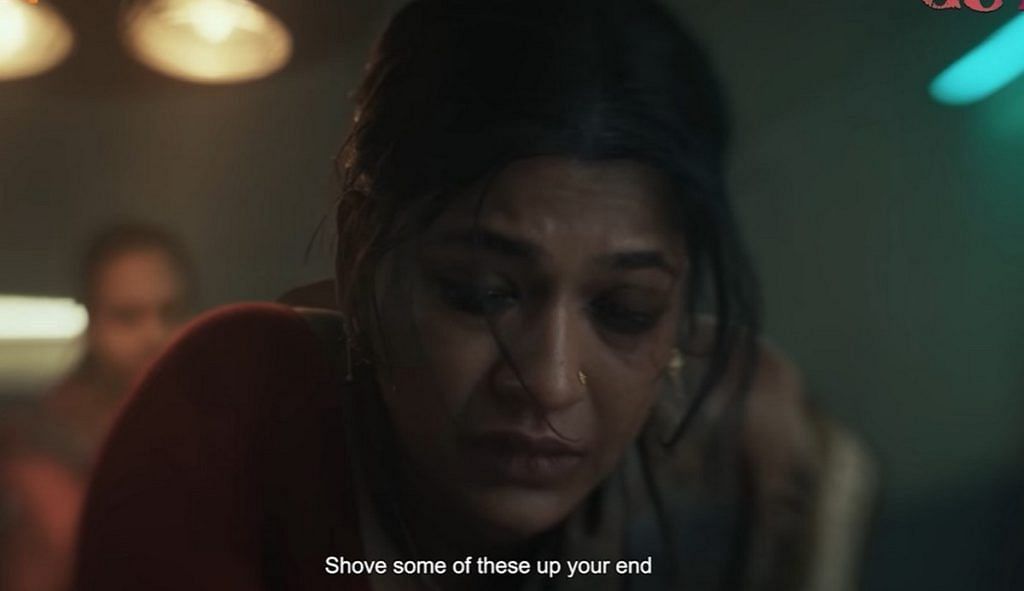
Amid all the bouquets and brickbats, Rony emphasises the importance of earning audience trust over time.
“People need to believe that when we write stories and flesh out characters, we are not looking at doing business by creating controversies. We are simply trying to tell stories honestly about people and situations that we see in society but do not often talk about in public,” he said.
This approach has wowed filmmakers and audiences in West Bengal too. Prasun Chatterjee, director of the award-winning hit Dostojee, told ThePrint that Chorki is the best among all Bengali OTT platforms.
“I am not saying other Bengali OTT platforms are not doing good work. But Chorki has maintained a consistency in quality content that should be a yardstick for everyone working in this space,” he said.
Chatterjee, known for his own work in channelling the power of local stories, added that Chorki stands out for its deep understanding of Bangladeshi society and culture. This is evident in several productions, such as the narco-thriller Shaaticup. Set in the underbelly of Rajshahi, it features the regional dialect and a local cast, all presented with what one reviewer called “stylistic swagger“.
Walking a tightrope between artistic freedom and self-censorship is a reality for storytellers across the world, and it’s no different for Chorki.
But sometimes, pushing the boundaries of art does not land well with the audience. Punormilone, a Chorki original film, released in September 2023 was about a man falling in love with his cousin’s wife, and she reciprocating.
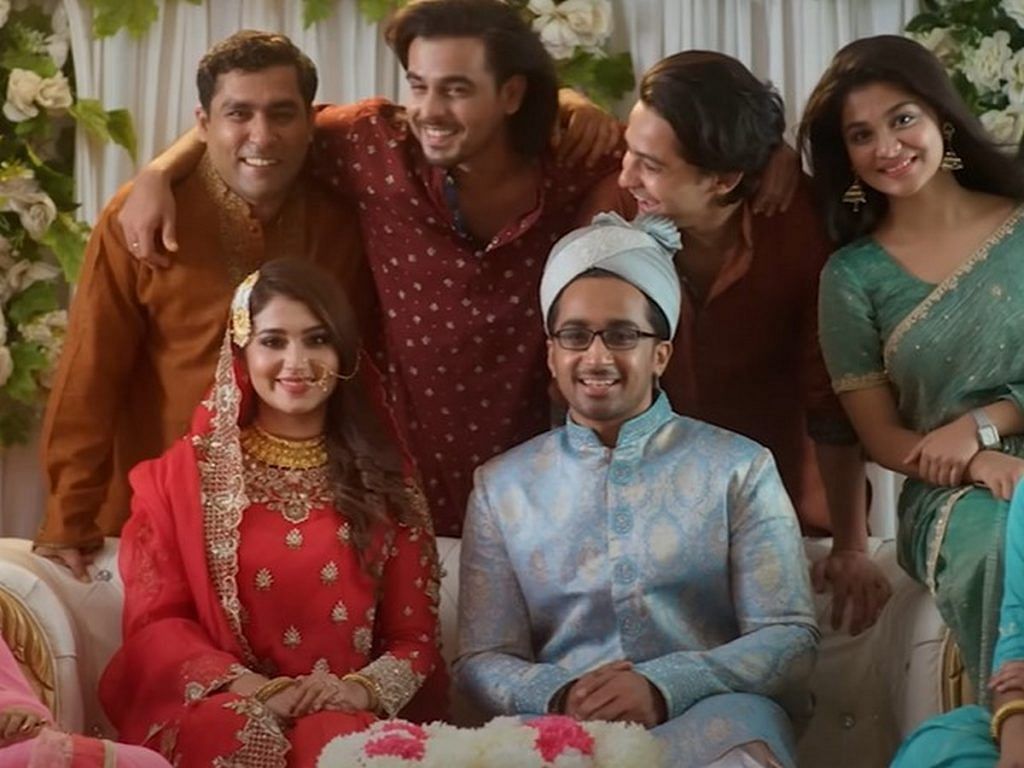
“It didn’t go down well with the audience,” Rony said, but noted that this is just part of the business and not a reflection on the Bangladeshi audience’s capacity to handle offbeat themes.
“There is some content that will do well and some that won’t. The Bangladeshi audience has matured over the years and have become really smart and demanding,” he added. “The fact that we continue to grow is proof of that. When the content we produce is seen outside the country, it also breaks the stereotype of Bangladesh as a conservative country.”
Also Read: Raktabeej & Pradhan to Bonbibi—are films playing political opposition in Bengal?
Censorship, commerce, content
Walking a tightrope between artistic freedom and self-censorship is a reality for storytellers across the world, and it’s no different for Chorki. But Rony insists that experimentation is in Chorki’s DNA because of its parent company Transcom Group, a large business conglomerate with a portfolio spanning beverages, pharmaceuticals, electronics, and media. Transcom also owns two of Bangladesh’s major newspapers, Prothom Alo and Daily Star.
“Our newspapers have pushed the boundaries of journalism, the papers have employed the best, brightest, and most fearless journalists in the country. Being part of the same family, there is a lot of expectation from us at Chorki,” said Rony.
However, he acknowledged that filmmakers, universally, need to be aware of limits based on their sociopolitical and commercial contexts.
“Filmmakers have been harassed and jailed across the world. The current government or the ones before have never said, ‘You can show this but not that’. But even as we experiment with storytelling, we have to be smart about how we go about our business,” he said.
Rony has big plans for 2024. For one, he wants to upgrade the Chorki app with better tech and a more user-friendly interface. He also wants to go back to directing at least one film himself every year.
“I want to explore ideas and partnerships with other regional film industries in India, apart from Bengal. To make our content truly global,” he added “Cultural fabrics differ, but emotions are universal.”
(Edited by Asavari Singh)


